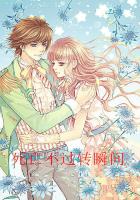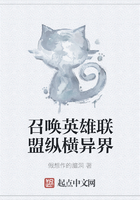The vehemence of Sir Everard's resentment against his brother was but short-lived; yet his dislike to the Whig and the placeman, though unable to stimulate him to resume any active measures prejudicial to Richard's interest in the succession to the family estate, continued to maintain the coldness between them.Richard knew enough of the world, and of his brother's temper, to believe that by any ill-considered or precipitate advances on his part he might turn passive dislike into a more active principle.It was accident, therefore, which at length occasioned a renewal of their intercourse.Richard had married a young woman of rank, by whose family interest and private fortune he hoped to advance his career.In her right he became possessor of a manor of some value at the distance of a few miles from Waverley-Honour.
Little Edward, the hero of our tale, then in his fifth year, was their only child.It chanced that the infant with his maid had strayed one morning to a mile's distance from the avenue of Brerewood Lodge, his father's seat.Their attention was attracted by a carriage drawn by six stately long-tailed black horses, and with as much carving and gilding as would have done honour to my lord mayor's.It was waiting for the owner, who was at a little distance inspecting the progress of a half-built farm-house.I know not whether the boy's nurse had been a Welsh or a Scotch woman, or in what manner he associated a shield emblazoned with three ermines with the idea of personal property, but he no sooner beheld this family emblem than he stoutly determined on vindicating his right to the splendid vehicle on which it was displayed.The Baronet arrived while the boy's maid was in vain endeavouring to make him desist from his determination to appropriate the gilded coach-and-six.
The rencontre was at a happy moment for Edward, as his uncle had been just eyeing wistfully, with something of a feeling like envy, the chubby boys of the stout yeoman whose mansion was building by his direction.In the round-faced rosy cherub before him, bearing his eye and his name, and vindicating a hereditary title to his family affection and patronage, by means of a tie which Sir Everard held as sacred as either Garter or Blue Mantle, Providence seemed to have granted to him the very object best calculated to fill up the void in his hopes and affections.Sir Everard returned to Waverley Hall upon a led horse which was kept in readiness for him, while the child and his attendant were sent home in the carriage to Brerewood Lodge with such a message as opened to Richard Waverley a door of reconciliation with his elder brother.
Their intercourse, however, though thus renewed, continued to be rather formal and civil than partaking of brotherly cordiality;yet it was sufficient to the wishes of both parties.Sir Everard obtained, in the frequent society of his little nephew, something on which his hereditary pride might found the anticipated pleasure of a continuation of his lineage, and where his kind and gentle affections could at the same time fully exercise themselves.For Richard Waverley, he beheld in the growing attachment between the uncle and nephew the means of securing his son's, if not his own, succession to the hereditary estate, which he felt would be rather endangered than promoted by any attempt on his own part towards a closer intimacy with a man of Sir Everard's habits and opinions.
Thus, by a sort of tacit compromise, little Edward was permitted to pass the greater part of the year at the Hall, and appeared to stand in the same intimate relation to both families, although their mutual intercourse was otherwise limited to formal messages and more formal visits.The education of the youth was regulated alternately by the taste and opinions of his uncle and of his father.But more of this in a subsequent chapter.















